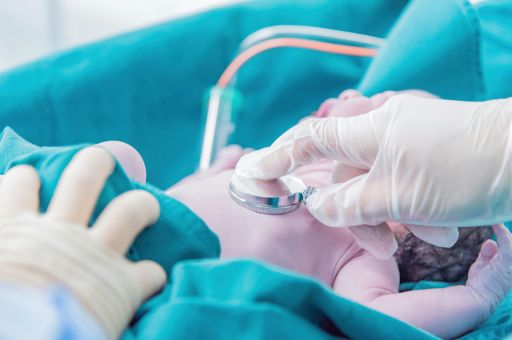These cardiac malformations affect between 5 and 15 babies per 1,000 newborns/year.
The Regional Minister of Health is pleased to add a new early detection programme that will prevent complications and deaths with a simple test.
The implementation of the Neonatal Screening Programme for Critical Congenital Heart Disease (CCC) in the Balearic Islands is closer. This initiative aims to detect cardiac structural anomalies early in all newborns on the islands to accelerate their treatment or surgical intervention, reduce morbidity and improve the prognosis and quality of life of all babies affected by them.
TDB keeps you informed. Follow us on: Facebook, Twitter and Instagram
Health presents a programme to detect critical congenital heart defects in all newborns in the Balearics
Congenital cardiopathies are the most frequent congenital malformations, accounting for approximately 28% of the total. On a national level, it is estimated that they have an incidence of between 5 and 15 cases per 1,000 live newborns per year.
The Regional Minister of Health, Manuela García, accompanied by the Director General of Public Health, Elena Esteban, presented the details of this new population screening programme, which is being worked on in conjunction with the clinical staff of all the hospitals to draw up a consensus document containing all the requirements and recommendations based on evidence to achieve a homogeneous approach in all the maternity hospitals on the islands, both public and private, which will benefit all newborns in the archipelago.
Another of the advantages of this new programme is that the referral circuits for these patients will be established and it will make it possible to keep a record of data and incidents that will allow us to correct what can be improved and make progress in what is being done well.
Manuela García pointed out that the presentation of this programme coincides with tomorrow’s celebration of International Congenital Heart Disease Day, which is held every 14th February.
The Councillor pointed out that ‘it is estimated that half of newborns with these congenital heart anomalies show no symptoms of suffering from them in their first days of life and that up to 30% of them would be discharged without a correct diagnosis’.
These figures will be significantly improved by a simple, painless, minimally invasive and inexpensive test, pulse oximetry, which will be performed on all babies within the first 24 hours of life. Pulse oximetry involves placing a medical device on a finger on the baby’s right hand or foot to measure the level of oxygen in the blood.
With this simple medical test, it will be possible to detect these heart diseases early and act sooner to avoid complications and death, stressed Manuela García.
Although they are not conclusive, low oxygen values in the bloodstream occur in the majority of congenital heart diseases, which is why these tests are the best way to detect them early. However, this initial diagnosis must later be confirmed by an echocardiogram and physical examination by a paediatric neonatologist.
With the implementation of this population screening programme, the aim is to incorporate health centres that do not yet perform pulse oximetry, as well as to establish a common action protocol for all of them and to establish referral circuits for the most serious cases to health centres on the mainland.
The two medical procedures for these severe neonatal heart defects, surgery and catheterisation, are not performed in island hospitals, because they are rare malformations with low demand and surgeons cannot acquire the necessary expertise to perform them safely. For this reason, these cases are usually referred to hospitals in Barcelona.
The Director General of Public Health, Elena Esteban, pointed out that the technicians of her department’s Malignancy Prevention Service have been working in a coordinated manner to work out the details of the implementation of this new screening for all newborns on the islands; clinical experts representing all the maternity hospitals on the islands, both public and private; the regional paediatrics coordinator of the Health Service, Dr Juan Carlos de Carlos, as well as a representative of the Balearic Union of Health Entities (UBES), on behalf of the entire private health sector in the Balearic Islands.
